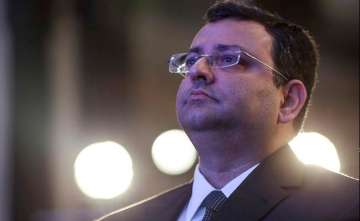The battle between ousted Tata Sons chief Cyrus Mistry and its interim chairman Ratan Tata has reached at a critical stage with Conglomerate's software firm TCS holding an extraordinary general meeting (EGM) seeking shareholders’ vote to oust Cyrus Mistry as a director of the company.
The move comes a month after Mistry was replaced by Ishaat Hussain as chairman of the software services firm. On Monday, Mistry was removed as director and chairman of Tata Industries following a shareholders’ vote.
On 17 November, the TCS board decided to call an EGM “pursuant to the special notice & requisition dated November 9, 2016 sent by Tata Sons, shareholder of the company holding 73.26% of the paid-up equity share capital of the company”, it had said in a statement.
A week before that, TCS used one of the statutes that makes it possible to nominate the chairman of the board to replace Mistry with Hussain. The Mistry camp had lashed out at his removal, calling it as a reflection of “cloak and dagger” machinations that define “the angry strategy of the Ratan Tata camp”.
Mistry had even alleged that Tata once tried to sell the IT firm to IBM, and his “ego” led to bad business decisions such as the Corus Plc acquisition at double the original cost. He however, changed his stance later stating his statement was based on “information from sources who were close to J.R.D. Tata who informed him that it was Ratan Tata’s intention, and not the group’s intention, to sell TCS”.
Tuesday’s shareholders vote will be the first of six such EGMs called by major listed Tata companies—Indian Hotels Co. Ltd (20 December), Tata Steel Ltd (21 December), Tata Motors Ltd (22 December), Tata Chemicals Ltd (23 December) and Tata Power Co. Ltd (26 December)—to seek Mistry’s ouster as director.
In case of Tata Motors, Tata Steel and Tata Chemicals, shareholders will also vote for a resolution moved by Tata Sons to remove Nusli Wadia as an independent director.
Tata Sons Ltd has been stepping up the pressure on Mistry ever since he was sacked as chairman of the holding company on 24 October. It has made several allegations against Mistry, including betraying trust and trying to gain control of major operating firms, concentrating powers and using free hand given to him to weaken management structures of the Tata Group. Last week, in a letter to shareholders of the companies, Ratan Tata said the continued presence of Mistry in their respective boards was a serious “disruptive influence” and could make the companies “dysfunctional”.
According to market observers, the voting pattern of the non-promoter group will give an indication of the level of support Mistry enjoys from shareholders, which in turn could set the tone for the EGMs that are to follow.
Mistry has vehemently denied all the allegations and stated that he was pushed to the position of a “lame-duck chairman” and changes in the decision-making process created “alternate power centres” in Tata Group.
Targeting Ratan Tata, Mistry had also alleged that individuals prone to “impulsive control” have exposed the Tata Group to perilous violation of regulatory requirements, and his fight was to protect the conglomerate from “capricious” decision-making by the interim chairman.
PTI inputs
Latest Business News
